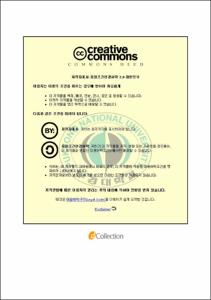호텔 종사원의 외부고객에 대한 감정노동이 직무성과에 미치는 영향
- Alternative Title
- The Effects of the Hotel Employees' Emotional Laborto External Customer on Job Performance
- Abstract
- 본 논문은 호텔 종사원의 외부고객에 대한 감정노동이 직무성과에 미치는 영향에 대해 연구를 하였다.
연구의 목적은 호텔 종사원의 고객과의 접점에서 일어나는 감정노동이 서비스의 집약체라 할 수 있는 호텔에서 직무성과에 어떠한 영향을 미치는 지를 밝히는데 있다.
본 연구를 위하여 서울과 부산의 특급호텔 종사원을 대상으로 감정노동과 직무성과에 대해서 설문조사을 하였다. 요인분석, 신뢰성 검증, 기술적 통계분석을 실시하였으며, 척도에 대한 신뢰성 검증결과 신뢰성 계수가 비교적 높게 나타났다.
설문조사 자료를 대상으로 분산분석(ANOVA)을 실시하여 감정노동이 직무성과에 미치는 영향을 분석하였다.
먼저 고객에 대한 감정노동을 조사한 결과 감정적 부조화와 감정표현의 주의정도라는 두 가지 요인으로 나타났으며 호텔 종사원들이 고객을 대함에 있어서 자신의 실제 감정과는 다르게 표현함에 있어서 많은 어려움이 있는 것으로 나타났다.
이러한 감정노동이 직무성과에 미치는 영향에 있어서도 감정표현의 주의정도 요인에서 부정적인 영향을 미치는 것으로 나타났다. 이러한 결과에서처럼 호텔에 종사하는 종사원들은 더 많은 심리적 에너지와 신체적 노력을 요구받고 있다. 지속적으로 감정표현을 하다보면 더 많은 주의력과 감정적 지구력이 요구된다는 것을 알 수 있고 고객과의 상호작용이 길어짐으로서 자신의 실제 감정을 숨기기가 더욱 어려움을 알 수 있다.
본 연구결과에서는 호텔 종사원들은 고객과의 지속적인 관계에서 실제 감정과는 다르게 고객에 대한 미소 응대라든가, 기분이 나빠도 고객에게 표시하지 않는 것이 어려운 것을 알 수 있으며, 이런 감정노동이 결과적으로 직무성과에도 부(-)의 영향으로 나타남을 알 수 있다.
호텔업의 특성상 인적서비스의 의존도가 크고 서비스가 무형의 속성이 강하므로 호텔 종사원들의 행위 및 태도가 고객들의 구매행위에 많은 영향을 미치게 된다. 따라서 고객에 대한 호텔 종사원들의 감정노동을 어떻게 효율적으로 관리하느냐가 호텔 영업에 있어서 중요한 지표가 될 것이다.
This thesis covers a study of the effects of the hotel employees' emotional labor to external customer on job performance.
Purpose of this study is to examine how far hotel employees' emotional labor, which must be served at the point of contact with the guests, has influence on the job result.
For this study, the questionnaire survey focused on emotional labor and job result of the employees of 5-star hotels in Seoul and Busan was conducted. Factor analysis, reliability acceptance test and technical statistics analysis were carried out, and the result of reliability test on reference showed relatively high reliability coefficient.
ANOVA based on the questionnaire survey was carried out to analyze the influence of emotional labor on the job achievement.
As the result of survey of emotional labor toward the guests, it was found that there were 2 factors as emotional discordance and degree of care in emotional expression, and the hotel employees had difficulties in giving different expression to the guests from their real emotion.
With regard to the influence of such emotional labor on the job achievement, it was found that emotional labor had negative influence on the factor of degree of care in emotional expression. This result implied that the hotel employees are being required their more psychological energies and physical efforts.
It can be acknowledged that more attention and emotional endurance are required by keeping on expressing their emotions consistently, and their hiding of real emotion is more difficult due to the long lapse of interaction with the guests.
The result of this study indicated that the hotel employees have difficulties in giving different expression instead of their real emotion under the situation of continuous contacts with the guests, for example, smile response to the guests or no expression of any unfavorable feeling which is emotion labor having negative influence on the job achievement.
Hotel business has great dependency on human services in its characteristics and is strong in its intangible properties, therefore, hotel employees' behavior and attitude have much influence on guests' purchase behavior. Therefore, how effectively manage the emotional labor of hotel employees for the guests will be important index for successful hotel business.
- Issued Date
- 2007
- Awarded Date
- 2007. 8
- Type
- Dissertation
- Keyword
- 감정노동 직무성과 호텔 종사원 외부고객 Emotional Laborto
- Publisher
- 부경대학교 경영대학원
- Alternative Author(s)
- Oh, Jong-Seob
- Affiliation
- 부경대학교 경영대학원
- Department
- 경영대학원 경영학과관광경영전공
- Advisor
- 전재균
- Table Of Contents
- 제 1 장 서론 = 1
제 1 절 연구 목적 = 1
제 2 절 연구의 방법 및 구성 = 3
제 2 장 이론적 배경 = 4
제 1 절 감정노동에 관한 연구 = 4
1. 감정노동의 개념 = 4
2. 감정노동의 차원 = 6
3. 감정노동의 결과 = 12
4. 서비스에서의 감정노동 = 15
제 2 절 직무성과 = 16
1. 직무성과의 개념 = 16
2. 직무성과에 관한 선행연구 = 18
제 3 장 연구모형의 설계 및 조사방법 = 21
제 1 절 연구 모형 및 가설의 설정 = 21
1. 연구모형의 설계 = 21
2. 가설의 설정 = 22
제 2 절 조사방법 = 22
1. 측정도구 = 22
2. 표본의 선정 = 23
3. 분석방법 = 24
제 4 장 연구 결과 = 25
제 1 절 표본의 인구통계학적 분포 = 25
제 2 절 측정도구의 신뢰성 및 요인분석 = 27
1. 고객에 대한 감정노동의 신뢰성 및 요인분석 = 28
2. 직무성과에 대한 신뢰성 및 요인분석 = 30
제 3 절 가설의 검증 = 31
제 5 장 결론 = 33
제 1 절 연구결과의 요약 및 시사점 = 33
제 2 절 향후 연구방향 = 34
참고문헌 = 36
설문지 = 42
감사의 글 = 46
- Degree
- Master
- Appears in Collections:
- 경영대학원 > 경영학과-관광경영학전공
- Files in This Item:
-
-
Download
 호텔 종사원의 외부고객에 대한 감정노동이 직무성과에 미치는 영향.pdf
기타 데이터 / 750.55 kB / Adobe PDF
호텔 종사원의 외부고객에 대한 감정노동이 직무성과에 미치는 영향.pdf
기타 데이터 / 750.55 kB / Adobe PDF
-
Items in Repository are protected by copyright, with all rights reserved, unless otherwise indicated.